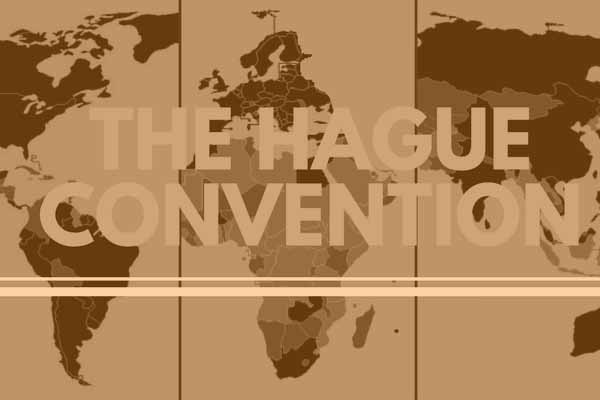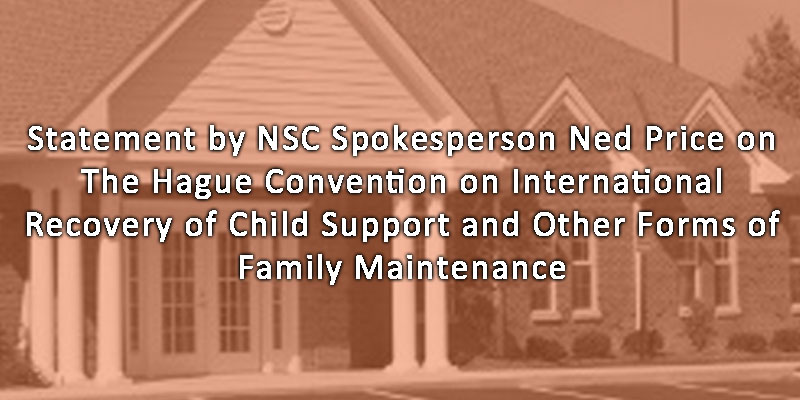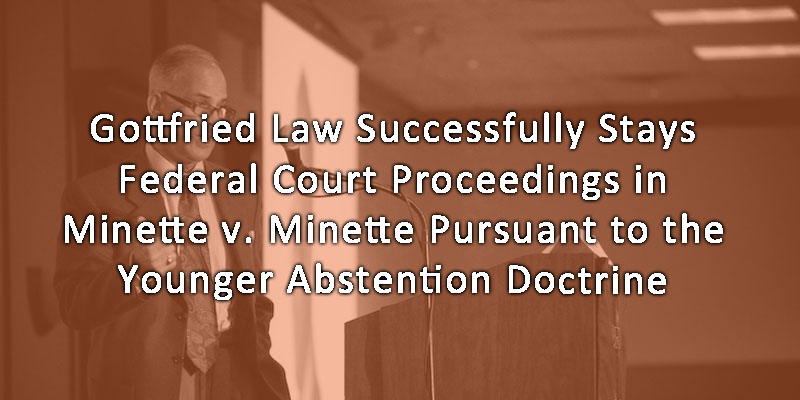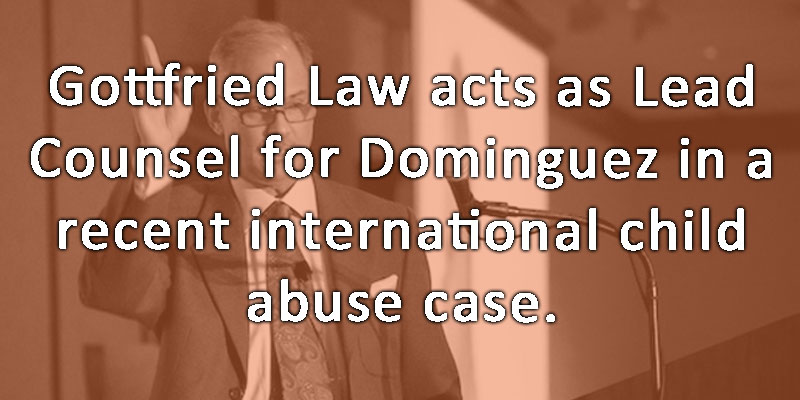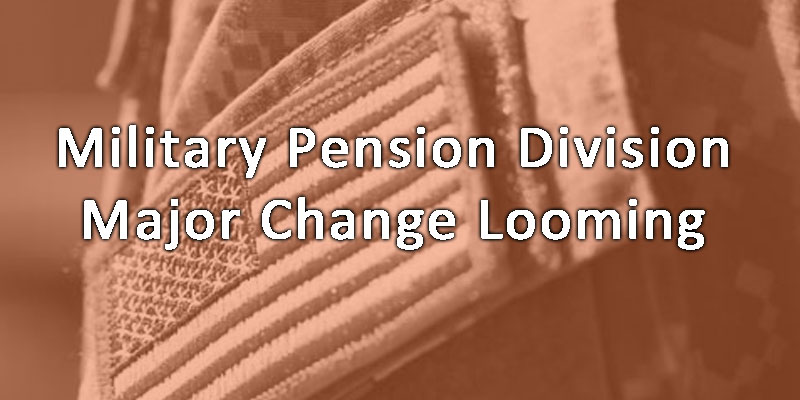
Military Pension Division – Major Change Looming
October 3, 2016
Tax Bill
November 3, 2017By Gary J. Gottfried LPA – Child Custody Attorney in Columbus, OH
A Brief Overview of the Convention on the International Recovery of Child Support and Other Forms of Family Maintenance and Its Application
The Hague Convention on the International Recovery of Child Support and Other Forms of Family Maintenance was concluded on November 23, 2007 with the purpose of building on existing Hague Conventions and other international instruments, specifically, the United Nations Convention on the Recovery Abroad of Maintenance which was enacted on June 20, 1956. In attempting to keep up with the advances in technology to create a more efficient and flexible system, the Hague Convention on the International Recovery of Child Support and Other Forms of Family Maintenance has created a unique framework to secure the recovery of maintenance for the child from the parent(s) or other responsible persons as a way to create the conditions of living necessary for child.
This article will serve as a broad overview of the mechanisms put in place by this Convention to create an environment in which Contracting Parties can more openly co-operate for the international recovery of child support and other forms of family maintenance. To obtain a better understanding of the framework within the Convention, it is important to know that it is divided into nine interrelated chapters with sixty-five articles addressing various aspects involved in the recovery of child support and other forms of maintenance. Chapter I of the Convention addresses its objective, scope and definitions. A selection of the more important Articles within Chapter I of the Convention is noted as follows: Article 1 is emblematic of the objectives the Convention is attempting to achieve by creating a comprehensive system of co-operation between the authorities of Contracting States, making available applications for the establishment of maintenance decisions, providing for the recognition and enforcement of maintenance decisions and requiring effective measures for the prompt enforcement of maintenance decisions. The scope of the Convention is further expounded upon in Article 2, which applies the Convention to maintenance obligations arising from a parent-child relationship towards a person under the age of 21 years. It should also be noted that Article 2 does provide Contracting States with the ability to limit the Convention’s application to persons who have not attained the age of 18 years.
Chapter II relates to the administrative co-operation between the Central Authorities of each Contracting State. A summation of the relevant Articles are as follows: Article 6 of the Convention details the specific functions of Central Authorities and their impact on the implementation and facilitation of applications for the enforcement of decisions made or recognized in the requesting Contracting State. Article 8 is an important part of the Convention as it requires each Central Authority to bear the costs of applying the Convention and not impose any charges on applicants save for exceptional circumstances. Article 10 details the categories of available applications to a creditor in a requesting State seeking to recover maintenance and Article 11 examines the contents of that application. It is also important to note Article 12, which involves the transmission, receipt and processing of applications through Central Authorities.
Another important aspect of the Convention is the recognition and enforcement of maintenance obligations in the Contracting State under Chapter V. Some of the relevant Articles in this Chapter include: Article 19 determines the scope of this Chapter and defines the concept of a “decision” by a judicial or administrative authority, Article 20 provides the basis for one Contracting State to recognize and enforce a decision in another Contracting State, Article 22 addresses the grounds for refusing recognition and enforcement, Article 23 details the procedure on an application for recognition and enforcement and Article 30 discusses the key concepts of “maintenance arrangements.”
Enforcement is also a significant aspect of the Convention for the Contracting State implementing the maintenance obligation and is addressed extensively in Chapter VI. Some of the significant Articles within this Chapter include: Article 32 provides that enforcement of such “decisions” shall take place in accordance with the law of the State addressed and Article 34 details the available enforcement measures including wage withholding orders, garnishments and deductions. Chapter VIII provides for general provisions of the Convention including the following Articles: Article 37 addresses direct requests to competent authorities, Article 38 provides for the protection of personal data and Article 40 details the non-disclosure of information detrimental to a person’s health, safety and liberty.
Chapter IX addresses the final provisions of this Convention and details ratification and accession of Contracting Parties. The relevant Articles are as follows: Article 58 deals with the signature, ratification and accession of Contracting States, Article 60 provides the Convention’s entry into force for Contracting States, Article 62 allows for Contracting State to make reservations, Article 63 permits Contracting State to make declarations at the time of signature, ratification, acceptance, approval or accession of the Convention and; lastly, Article 65 provides that the depositary shall notify the Members of the Hague Conference on Private International Law and Other States and Regional Economic Integration Organizations which Contracting States have signed, ratified, accepted, approved or acceded to the Convention.
Seeking to build upon the Convention on the Recovery Abroad of Maintenance of 20 June 1956, multiple Countries have entered into force the Hague Convention on the International Recovery of Child Support and Other Forms of Family Maintenance including Albania, Bosnia-Herzegovina, the European Union, Norway, Turkey, Montenegro and Ukraine. The European Union became a party in 2014 as a Regional Economic Integration Organization. Because the subject matter of the convention fully falls within EU competency, the EU rather than the individual member states became a party. The convention is applicable to all 28 member states except Denmark.
In September 2016 President Obama signed legislation which made the convention enforceable in the United States. Effective January 2017 the Convention will provide many substantial benefits for the member countries analogous to the Uniform Interstate Family Support Act. In addition to increasing the cooperation between Contracting Countries (and called “States” under the provisions of the treaty) and providing efficient procedures to process international child support cases, the Convention, as Article 8 indicates, provides cost-free services for US citizens needing assistance with child support enforcement in other Contracting States (countries). Overall, the Hague Convention on the International Recovery of Child Support and Other Forms of Family Maintenance, once entered into force, will provide significant benefits to individual states within the United States and create an efficient procedure for the processing of international child support cases.
Gary J. Gottfried ranks as a top 50 divorce lawyer in Columbus OH.




